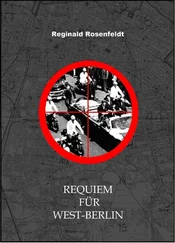Isaiah Berlin - Russian Thinkers
Здесь есть возможность читать онлайн «Isaiah Berlin - Russian Thinkers» весь текст электронной книги совершенно бесплатно (целиком полную версию без сокращений). В некоторых случаях можно слушать аудио, скачать через торрент в формате fb2 и присутствует краткое содержание. Год выпуска: 0101, Жанр: Старинная литература, на русском языке. Описание произведения, (предисловие) а так же отзывы посетителей доступны на портале библиотеки ЛибКат.
- Название:Russian Thinkers
- Автор:
- Жанр:
- Год:0101
- ISBN:нет данных
- Рейтинг книги:3 / 5. Голосов: 1
-
Избранное:Добавить в избранное
- Отзывы:
-
Ваша оценка:
- 60
- 1
- 2
- 3
- 4
- 5
Russian Thinkers: краткое содержание, описание и аннотация
Предлагаем к чтению аннотацию, описание, краткое содержание или предисловие (зависит от того, что написал сам автор книги «Russian Thinkers»). Если вы не нашли необходимую информацию о книге — напишите в комментариях, мы постараемся отыскать её.
Russian Thinkers — читать онлайн бесплатно полную книгу (весь текст) целиком
Ниже представлен текст книги, разбитый по страницам. Система сохранения места последней прочитанной страницы, позволяет с удобством читать онлайн бесплатно книгу «Russian Thinkers», без необходимости каждый раз заново искать на чём Вы остановились. Поставьте закладку, и сможете в любой момент перейти на страницу, на которой закончили чтение.
Интервал:
Закладка:
sort of member of the gentry. Bazarov spends his afternoon in dissecting
frogs. 'A decent chemist', he tells his shaken host, 'is twenty times
1 Sorel declares that this passage occurs in a letter which, according
to the economist Lujo Brentano, Marx wrote to one of his English friends,
Professor Beesly (RijltxifJns sur Ia rJiolttut, 7th ed. [Paris, 1 930 ], p. 199,
note z). I have not found it in any published collection of Marx's letters.
278
FATHERS AND C H I LDREN
more use than any poet.' Arkady, after consulting Bazarov, gently
draws a volume of Pushkin out of his father's hands, and slips into
them BUchner's Kraft und Stoff',! the latest popular exposition of
materialism. Turgenev describes the older Kirsanov walking in his
garden: 'Nikolay Petrovich dropped his head, and passed his hand over
his face. "But to reject poetry," he thought again, "not to have a
feeling for art, for nature . . • " and he cast about him, as if trying to
understand how it was possible not to have a feeling for nature.' All
principles, Bazarov declares, are reducible to mere sensations. Arkady
asks whether, in that case, honesty is only a sensation. 'You find this
hard to swallowl' says Bazarov. 'No, friend, if you have decided to
knock everything down, you must knock yourself down, too! • . . '
This is the voice of Bakunin and Dobrolyubov : 'one must clear the
ground'. The new culture must be founded on real, that is materialist,
scientific values: socialism is just as unreal and abstract as any other
of the 'isms' imported from abroad. As.for the old aesthetic, literary
culture, it will crumble before the realists, the new, tough-minded
men who can look the brutal truth in the face. 'Aristocracy, liberalism,
progress, principles . . . what a lot of foreign . . . and useless words. A
Russian would not want them as a gift.' Paul Kirsanov rejects this
contemptuously; but his nephew Arkady cannot, in the end, accept it
either. 'You aren't made for our harsh, bitter, solitary kind of life,'
Bazarov tells him, 'you aren't insolent, you aren't nasty, all you have
is the audacity, the impulsiveness of youth, and that is of no use in
our business. Your type, the gentry, cannot get beyond noble humility,
noble indignation, and that is nonsense. You won't, for instance, fight,
and yet you think yourselves terrific. We want to fight . . . Our dust
will eat out your eyes, our dirt will spoil your clothes, you haven't
risen to our level yet, you still can't help admiring yourselves, you
like castigating yourselves, and that bores us. Hand us others-it is
them we want to break. You are a good fellow, but, all the same, you
are nothing but a soft, beautifully bred, liberal boy . . . '
Bazarov, someone once said, is the first Bolshevik; even though he
is not a socialist, there is some truth in this. He wants radical change
and does not shrink from brute force. The old dandy, Pavel Kirsanov,
protests against this: 'Force? There is force in savage Kalmucks and
Mongols, too . . . What do we want it for? . . . Civilisation, its fruits,
are dear to us. And don't tell me they are worthless. The most
1 Turgenev calls it Stoff t111J Krtlft.
,,
279


R U S S IAN T H I N K ERS
miserable dauber . • . the pianist who taps on the keys in a restaurant
. . . they are more useful than you are, because they represent civilisation and not brute Mongol force. You imagine that you are progressive; you should be sitting in a Kalmuck wagon !' In the end, Bazarov,
against all his principles, falls in love with a cold, clever, well-born
society beauty, is rejected by her, suffers deeply, and not long after
dies as a result of an infection caught while dissecting a corpse in a
village autopsy. He dies stoically, wondering whether his country had
any real need of him and men like him; and his death is bitterly
lamented by his old, humble, loving parents. Bazarov falls because he
is broken by fate, not through failure of will or intellect. 'I conceived
him', Turgenev later wrote to a young student, 'as a sombre figure,
wild, huge, half-grown out of the soil, powerful, nasty, honest, but
doomed to destruction because he still stands only in the gateway to
the future • . .'1 This brutal, fanatical, dedicated figure, with his
unused powers, is represented as an avenger for insulted human
reason; yet, in the end, he is incurably wounded by a love, by a human
passion that he suppresses and denies within himself, a crisis by which
he is humiliated and humanised. In the end, he is crushed by heartless
nature, by what the author calls the cold-eyed goddess Isis, who does
not care for good or evil, or art or beauty, still less for man, the
creature of an hour; he is not saved either· by his egoism or his altruism,
by faith or works, by rational hedonism or puritanical pursuit of duty;
he struggles to assert himself; but nature is indifferent; she obeys her
own inexorable laws.
Fathers and Children was published in the spring of I 862 and caused
the greatest storm among its Russian readers of any novel before or,
indeed, since. What was Bazarov? How was he to be taken? Was he
a positive or a negative figure? A hero or a devil? He is young, bold,
intelligent, strong, he has thrown off the burden of the past, the
melancholy impotence of the 'superfluous men' beating vainly against
the bars of the prison house of Russian society. The critic Strakhov in
his review spoke of him as a character conceived on a heroic scale. 1
Many years later Lunacharsky described him as the first 'positive' hero
in Russian literature. Does he then symbolise progress? .Freedom? Yet
1 Letter to K. K. Sluchevsky, 26 April I 862.
• 'Ottsy i deti', Yrtmyt�, 1 862 No 4, pp. sB-84. See also his essays on
Turgenev in Kriticlmlit st11t'i o6 I. S. Turgtnltlt i L. N. Toll/om (I86z-Bs)
(St Petersburg, J88S)·
FAT H E RS AND C H I LD R E N
his hatred of art and culture, of the entire world of liberal values, his
cynical asides-does the author mean to hold these up for admiration?
Even before the novel was published his editor, Mikhail Katkov,
protested to Turgenev. This glorification of nihilism, he complained,
was nothing but grovelling at the feet of the young radicals. 'T urgenev',
he said to the novelist's friend Annenkov, 'should be ashamed of
lowering the Rag before a radical', or saluting him as an honourable
soldier.1 Katkov declared that he was not deceived by the author's
apparent objectivity: 'There is concealed approval lurking here . . .
this fellow, Bazarov, definitely dominates the others and does not
encounter proper resistance', and he concluded that what Turgenev
had done was politically dangerous.• Strakhov was more sympathetic.
He wrote that Turgenev, with his devotion to timeless truth and
beauty, only wanted to describe reality, not to judge it. He too, however, spoke of Bazarov as towering over the other characters, and declared that Turgenev might claim to be drawn to him by an
irresistible attraction, but it would be truer to say that he feared him.
Katkov echoes this: 'One gets the impression of a kind of embarrassment in the author's attitude to the hero of his story . . . It is as if the author didn't like him, felt lost before him, and, more than this, was
Читать дальшеИнтервал:
Закладка:
Похожие книги на «Russian Thinkers»
Представляем Вашему вниманию похожие книги на «Russian Thinkers» списком для выбора. Мы отобрали схожую по названию и смыслу литературу в надежде предоставить читателям больше вариантов отыскать новые, интересные, ещё непрочитанные произведения.
Обсуждение, отзывы о книге «Russian Thinkers» и просто собственные мнения читателей. Оставьте ваши комментарии, напишите, что Вы думаете о произведении, его смысле или главных героях. Укажите что конкретно понравилось, а что нет, и почему Вы так считаете.










